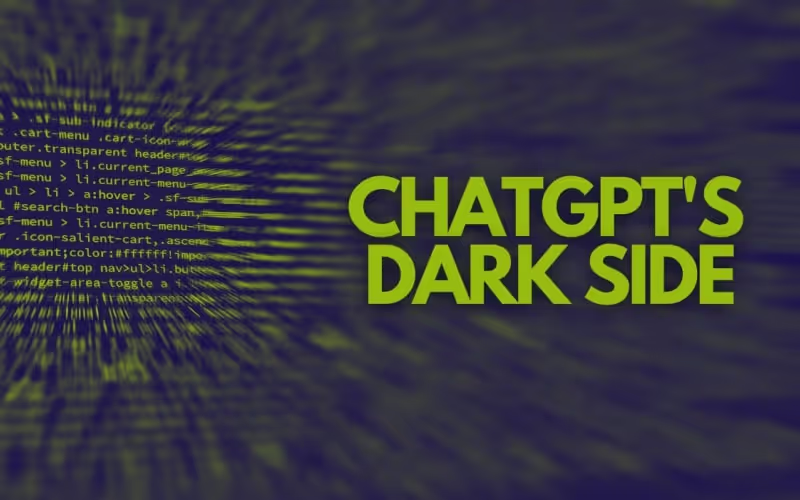
ChatGPT & Financial Crime: 4 Crucial Things To Know
Open AI's ChatGPT is the fastest-growing web platform - ever. In January 2023, it surpassed 100 million active users. And guess what? Financial fraudsters and money launderers can use the insanely popular AI chatbot to assist them in doing their dirty work.
This fast-moving development should be frightening for financial crime specialists. And if you found your way to this article, you are undoubtedly already thinking about the problem.
In this post, sanctions.io reveals four things all anti-fraud and AML compliance teams need to know to stay on top of the situation.
1. Criminals Will Become Skilled ChatGPT Operators
The first thing to know is this: Many criminals are already using ChatGPT to earn their illicit profits.
Criminals, especially in cybercrime, can utilize ChatGPT in various ways, such as creating convincing phishing emails, scamming people into providing personal information or payment, or generating fake news and propaganda to manipulate public opinion. It could also create customized malware.
The situation is astounding because criminals can find ways to use ChatGPT for their illegal money-making operations and in how they launder the profits.
And what does this mean? It means they are becoming high-skilled ChatGPT operators. This skill set makes them a competent foe to financial crime fighters working in anti-fraud and AML compliance departments.
2. Ways Financial Criminals Can Use ChatGPT
Let's now examine the creative ways fraudsters and money launderers can use ChatGPT (it would be naive to think they aren't already) in an attempt to spoof anti-fraud and AML systems.
But it's important to remember that criminals have always done the following things, even before computers existed. What's changing is the speed, ease, and efficiency in which they can commit these crimes. Here are some of the ways:
- Creating fake supporting documents
- Developing fake customer profiles
- Generating fake transaction records
- Creating false financial statements
- Making fake invoices
- Creating fake contracts
If you have yet to use ChatGPT, you may be reading this and thinking: how is this possible? The answer is that it's as easy as typing into a keyboard, clicking enter, and waiting a few seconds for the reply.
By inputting details like company names, dates, and amounts of money, ChatGPT can churn out convincing documents that financial criminals can use to cover their tracks.
But that's only part of what ChatGPT can do. This powerful AI tool can create or alter fake identities by producing convincing text for fake passports, driver's licenses, and other legitimate official documents.
And do you want to know something else? This technology is in its infancy.
Even the latest version launched just last week (at the time of writing), Chat GPT-4, can be compared to the Internet in 1994 (when Jeff Bezos launched Amazon) - only 10,000 websites existed. There are now more than a billion websites, and we all know how the world has completely changed.
The development of ChatGPT and AI is set to have equally (if not more) disrupting effects. And the dark world of fraud and money laundering will change with it.
3. ChatGPT Tech is Moving Fast (A Gift For Financial Criminals)
Since OpenAI was founded in 2015 by prominent technology leaders, including Elon Musk, things have moved fast.
But the pace is already stepping up a notch - especially because ChatGPT is now in the hands of the masses - including financial fraudsters and money launderers.
And think about this: Microsoft already announced it's improving Office 365 with ChatGPT-like generative AI technology.
OpenAI, the creators of ChatGPT, and Microsoft have a multi-billion long-term partnership giving the Redmond-based tech behemoth exclusive rights to ChatGPT technology.
This integration has yet to happen - but it's coming. Microsoft says the technology will change how millions use productivity tools like Outlook, PowerPoint, Excel, and Word daily.
Everyone is rubbing their hands, thinking about the possibilities. But in some dark room somewhere - so are the fraudsters and money launderers. Remember, a financial criminal's to-do list could look like this:
- Create a fake trade invoice (in Chinese)
- Make a phony bank statement (in Spanish)
- Put together a false business energy contract (in French)
This to-do list is already fast work with the current ChatGPT tech. With the eventual integration into tools like Excel and PDF Office - it will get even easier.
And so will the financial criminals' productivity, giving them more time to do other things: such as attempting to commit more illegal acts.
4. Financial Crime Teams Will Massively Embrace AI Tech
ChatGPT is part of the broader artificial intelligence (AI) ecosystem we hear so much about in the news. This includes many technologies and applications that use machine learning algorithms.
If you work in an AML or fraud prevention team, you already know this: There has been a doubling down on bringing AI solutions into companies' toolboxes.
And since financial criminals are increasingly utilizing AI, it has become imperative for financial crime fighters to adopt and leverage these tools too.
Anti-Money Laundering & AI
Given the risks presented by AI technology, the Financial Action Task Force (FATF) recommended integrating AI and machine learning tools into AML and Countering the Financing of Terrorism (CFT) solutions.
On the sanctions.io blog, we also wrote about the Wolfsberg Group's Principles for Using AI in AML. The article outlines challenges in implementing AI tech into AML compliance - as robust governance frameworks are required to evaluate the use of AI to ensure that it is consistent with legal, regulatory, and internal requirements.
The integration is a challenge, but in the last five years regulated industries with AML obligations are embracing RegTech solutions (most of which utilize AI, such as sanctions.io) at an astonishing rate.
A 2022 market report predicts that the industry is growing at 23.92% CAGR (compound annual growth rate).
Fraud Prevention & AI
So much progress has already happened in the fraud detection and prevention arena. The AI adoption rate has been staggering.
For example, banks are rapidly deploying AI-based systems at an unprecedented rate. In 2021 FinTech News reported that banks spent a jaw-dropping $217 billion on AI applications for middle-office use cases such as fraud prevention and risk assessment.
And as sanctions.io wrote in 2022, AI is also revolutionizing the process of ID verification, which is a critical component of fraud prevention.
Generative AI (which can create original and unique outputs, such as images and videos) presents a growing problem. Criminals already utilize adapted phones that hijack cameras and inject ready-made deep fake models to evade KYC (Know Your Customer) systems.
Businesses and organizations with stricter KYC processes are significantly increasing their investments in AI technologies that mitigate the risks associated with deepfake technology.
Final Thoughts
Open AI's ChatGPT, with over 100 million active users, is the fastest-growing web platform ever. It's an incredible development for humankind. However, criminals can utilize the AI chatbot to assist in financial crime.
ChatGPT, and AI technology in general, will make fraudsters and money launderers formidable opponents for financial crime fighters working in fraud prevention and AML compliance teams.
To find out more about ways to detect and prevent money laundering within your organization, contact sanctions.io for an obligation-free discussion. We enable intelligent AI-powered sanctions, PEP, and criminal watchlist screening for your AML, KYC & trade compliance screening needs.



